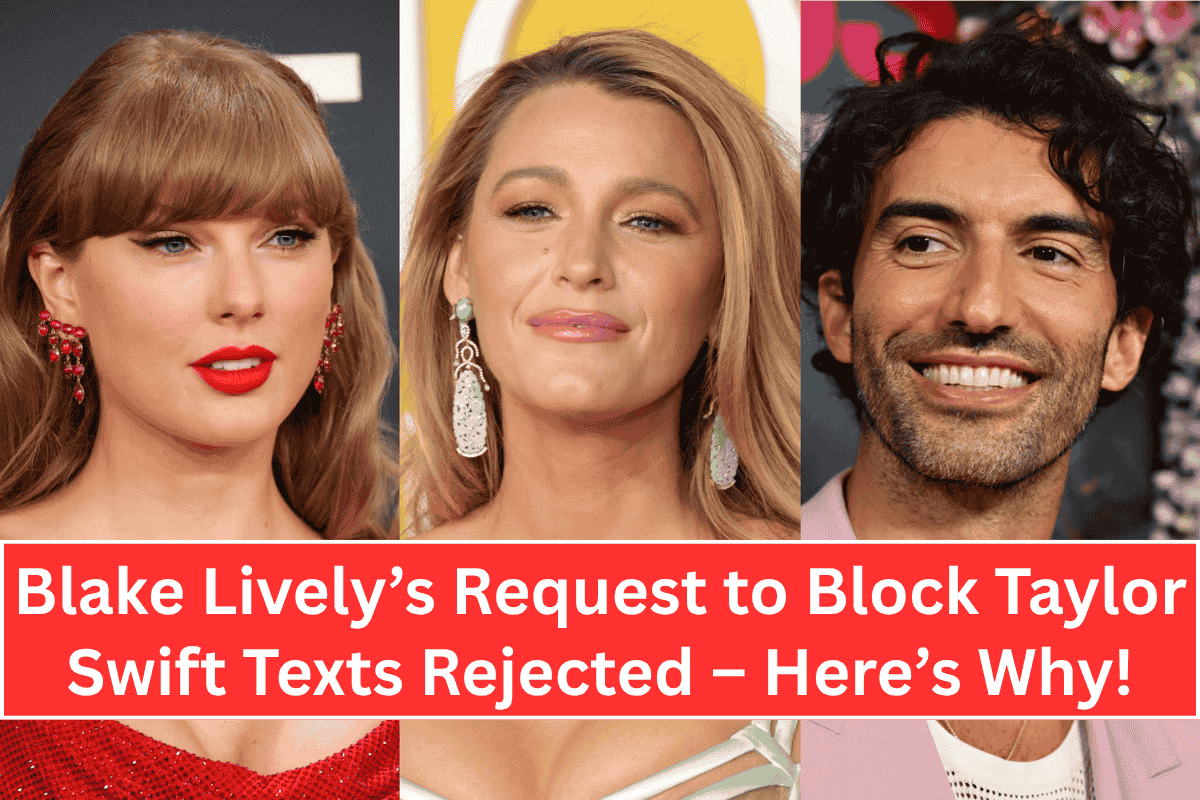Blake Lively’s legal battle over her communications with Taylor Swift has taken a new turn after a judge denied her motion to protect these texts from Justin Baldoni’s legal team.
The communications, related to the film It Ends With Us, had been at the center of a legal dispute, and the recent ruling leaves the future of the case in question.
The Request for Privacy
On June 18, Judge Lewis J. Liman ruled against Lively’s motion for a protective order, which aimed to keep her texts with Taylor Swift private from Justin Baldoni’s team. Baldoni’s defense team had subpoenaed Swift for records, although the subpoena was later withdrawn.
Despite this, Baldoni’s team allegedly continued to demand access to Lively’s communications with Swift, believing they were crucial to the ongoing lawsuit.
A representative for Lively, 37, responded to the ruling, claiming that Baldoni’s actions were an attempt to use Swift’s popularity to distract from more serious issues in the lawsuit.
Lively’s team accused Baldoni of exploiting Swift’s name and presence for public relations purposes, particularly after the involvement of a crisis PR firm led by Melissa Nathan.
Judge’s Ruling
The judge’s ruling emphasized concerns that the requests for Swift’s communications were not about uncovering information for the lawsuit, but rather about supporting a public relations strategy.
Judge Liman noted that the protective order was intended to allow parties to share sensitive information without fear of it being leaked to the press, especially when it might only be “tangentially related” to the main case.
In addition to denying Lively’s motion, the judge also rejected Baldoni’s request for a cross-motion to compel Lively to produce documents related to the film’s production, which was central to the claims in the lawsuit.
The judge acknowledged that Lively’s accusations of sexual harassment and retaliation were at the heart of Baldoni’s defense team’s interest in the communications between Lively and Swift.
Background of the Case
This legal dispute stems from the ongoing It Ends With Us lawsuit, in which Lively has made allegations of harassment and retaliation during the film’s production.
Taylor Swift’s involvement in the case has largely been in connection with her song “My Tears Ricochet,” which was included in the film’s soundtrack. However, Swift did not have a direct role in the film’s production.
This ruling follows the dismissal of Baldoni’s $400 million countersuit against Lively, her husband Ryan Reynolds, their publicist Leslie Sloane, and The New York Times.
The countersuit was filed after a New York Times article accused Baldoni and others of orchestrating a smear campaign against Lively. Baldoni’s subsequent defamation lawsuit was also dismissed by the judge.
Public Response and Implications
Following the court’s decision, Lively’s legal team continued to argue that Baldoni’s focus on Swift’s texts was part of a broader effort to manipulate public perception outside the courtroom. The dispute over the communications and the broader case surrounding It Ends With Us remains ongoing.
Despite the legal tensions, the involvement of Taylor Swift in the controversy continues to draw attention. Swift’s involvement in the It Ends With Us soundtrack and her indirect connection to the film has kept her in the spotlight, even though her role in the case remains peripheral.
The judge’s decision marks a pivotal moment in the ongoing legal drama between Blake Lively, Justin Baldoni, and their respective teams. With the court ruling against Lively’s request for privacy regarding her communications with Taylor Swift, it appears that the lawsuit is far from over.
As the case progresses, the focus on public relations and the use of celebrity influence in legal matters continues to raise questions about the boundaries between the courtroom and the public eye.












